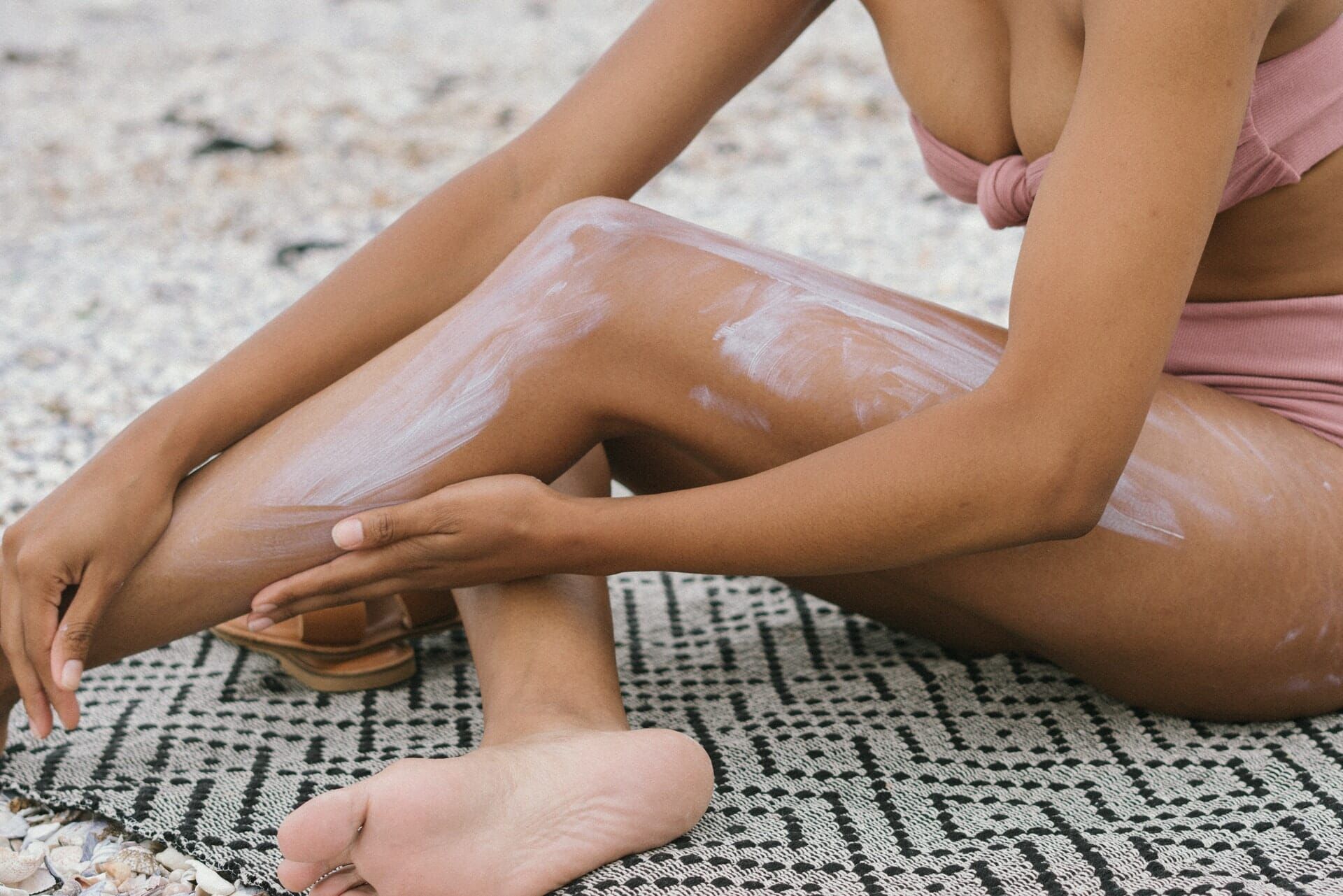When it comes down to buying protection from UV rays, there are two types of sunscreen to look out for when making a purchase: mineral and chemical-based.
The main difference between mineral vs chemical sunscreens is that mineral-based sunscreen sits on the skin – whereas chemical sunscreens have their ingredients absorbed into the skin.
Both options have their benefits – but when determining which one would be best for you, there are several pros and cons to keep in mind.
What is Mineral Sunscreen?
Also called a ‘physical blocker’, a mineral-based sunscreen contains either titanium dioxide, zinc oxide, or a combination of the two to protect from ultraviolet radiation.
Pros of Mineral Sunscreen
The benefits of a mineral sunscreen include:
- Immediate protection from the sun’s rays as soon as it’s applied to your skin.
- A longer shelf-life and duration of indirect UV-ray protection.
- A decreased chance of experiencing irritation, ideal for those with sensitive skin types.
- Deflection of heat and energy from the sunlight from a physical blocker may greatly benefit any dermis that may have such conditions as rosacea.
- A reduced likeliness of having pore clogs when applying to your skin if your skin type is prone to blemishes.
Cons of Mineral Sunscreen
Of course, there are a few downsides to mineral sunscreen, such as:
- Reapplication of mineral-based protection may be more frequent as it can be rubbed, sweated, and rinsed off easily.
- A ‘chalkiness’ – or white cast – may develop and be left on your skin.
- Mineral sunscreen blockers can be quite thick – and may cause white ‘drips’ when perspiring, if not rubbed in thoroughly and properly.
Chemical-based Sunscreens
Using compounds like oxybenzone (more on why the industry is moving away from oxybenzone), avobenzone, and octinoxate, chemical sunscreens help produce a chemical reaction that absorbs and releases the heat generated by ultraviolet rays from the skin.
Pros of Chemical Sunscreens
The benefits of a chemical sunscreen may include:
- Ease of application due to a thinner material, making it more ideal for wearability and daily use.
- Applying this type of sunscreen less frequently as the molecules of chemical sunscreens lack spaces between them.
- Can blend a chemical-based sunscreen with other ingredients – such as enzymes or peptides – that help benefit the skin.
Cons of Chemical Sunscreens
However, just like with mineral sunscreen, there are downsides to chemical sunscreens. These include:
- A probable increase in existing discoloration or ‘brown spots’ on the skin due to high internal skin temperatures.
- Wait times of roughly 20 minutes once applied before the compounds begin to activate.
- Can experience irritation or stinging of the skin; more so for those with dry skin or similar dermatological issues. This chance can further increase the higher an SPF rating a formula may have.
- When in direct UV radiation, chemical sunscreen protection could be used up more quickly
- Both an increased likelihood of experiencing pore-clogging (if you have an oily skin type) as well as redness.
The Key Difference between Chemical vs. Mineral Sunscreen
With a mineral-based sunblock, ingredients sit on the skin – whereas chemical sunscreens have their ingredients absorbed into the skin. Mineral sunscreens do not absorb into the bloodstream, which are considered safer for everyone.
Chemical sunscreens may also negatively impact the environment and – although without proven certainty – have faced recalls over several years.
If you have sensitive skin, rosacea, or acne-prone skin, it may be best to look into mineral-based sunscreen protection. Mineral-based sunscreen can provide greater long-term protection, even if it takes longer to apply than a chemical sunscreen.
Even those who wear makeup may find a benefit to mineral-based sunscreens since they are better for application under makeup.
Protect Your Melanin Skin with Regular Sunscreen Use
Your melanin is amazing. It performs super hero-like duties, but unfortunately it cannot completely protect you from harmful UV rays. Take the time to research skin cancer in African Americans and purchase sunscreen, based on your needed sun protection factor. Your body will thank you.
- Black Girl Sunscreen Moisturizing SPF 30 – Filled with ingredients that will protect your skin from the sun, our SPF 30 doubles as a moisturizing lotion that dries completely clear. Making it perfect to use before any outdoor activity or as a primer under your favorite makeup products.
- Black Girl Sunscreen Make It Matte™ SPF 45 – Black Girl Sunscreen’s lightweight, gel formula protects against sun damage leaving no white residue and a mattifying finish for oily skin. Make it Matte is a broad-spectrum SPF 45 sunscreen infused with ingredients. Aloe, squalene, and shea butter ingredients help moisturize, soothe and heal your skin.
- Black Girl Sunscreen Make it Hybrid™ SPF 50 – Black Girl Sunscreen’s lightweight mineral and synthetic formula with zinc-oxide is designed to protect against sun damage leaving no white residue and a dewy finish.
- BGS Kids SPF 50 – BGS Kids is an everyday SPF 50 moisturizing sunscreen lotion for face and body. Our sunscreen protects against harmful UVA/UVB rays and has eliminated all sticky white residue. Soothes, moisturizes, protects, hydrates and heals your child’s skin.
In the end, you should consider your skin type and needs when selecting the best choice of UV-ray production – whether it’s a mineral or chemical-based formula.

